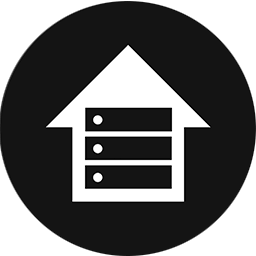cross-posted from: https://allovertheplace.ca/users/RareBird15/statuses/114192881822237478
I’m curious to hear what others are #SelfHosting! Here’s my current setup:
Hardware & OS
- Hardware: #RaspberryPi500 (8 GB RAM, 512 GB SD card) #RPi #RPi500 #SingleBoardComputers #HomeLab
- OS: #Stormux, an accessible #Linux distro based on #ArchLinuxARM #LinuxAccessibility #AccessibleTech
Infrastructure & Networking
- Dashboard: #Glance (#Docker) #DockerApps
- Reverse Proxy: #Caddy
- DNS: #Cloudflare
- Domain Registrar: #Porkbun
- Networking & Remote Access: #Tailscale (non-Docker), love its SSH agent and magic DNS features. #NetworkSecurity
Security & Monitoring
- Ad Blocking: #AdGuardHome (non-Docker). Previously used PiHole but find AdGuardHome slightly faster. #PrivacyTools
- Server Monitoring: #Beszel (non-Docker). Tried Grafana/Prometheus/Alertmanager (accessible but overkill) and Netdata (poor screen reader accessibility). Beszel isn’t perfect but best compromise so far. #ServerMonitoring
- Server Overview: #Cockpit (non-Docker)
- Security Tools: #Fail2ban, #FirewallD, #ClamAV, and #Rkhunter (non-Docker). Tried CrowdSec but couldn’t get it working on Stormux. #CyberSecurity
- Service Uptime Monitoring: #UptimeKuma (Docker), accessible and easy to use. #MonitoringTools
Authentication & Identity Management
Authelia (Docker): Just set this up for two-factor authentication and single sign-on. Seems to be working well so far!
LLDAP (Docker): Lightweight LDAP server for managing authentication. Also seems to be working pretty well!
#AuthenticationTools #IdentityManagementProductivity & Personal Tools
- Docker Management: #Dockge (Docker). More accessible than Portainer; main issue is built-in terminal isn’t readable with screen readers. #DockerCompose
- Docker Logs Viewer: #Dozzle (Docker), great web interface and easy searching.
- Git Hosting: #Forgejo (non-Docker), my personal Git server. #GitServer
- Backups: #IDrive (non-Docker), backs up all my devices easily. #BackupSolutions
- Notes: #Joplin server (Docker). Accessibility improving; love the VSCode extension. #NoteTakingApps
- Bookmarks: #Linkding (Docker). Accessible bookmark manager with good browser extension support. #BookmarkManager
- Recipes: #Mealie (Docker), starting to learn cooking! 🍳📖 #CookingApps
- RSS Feeds: #Miniflux (non-Docker), excellent accessibility. Originally wanted better podcast support but other options had major accessibility issues. #RSSReader
- Automation & Workflows: #N8N (Docker). Haven’t explored deeply yet—open to ideas! #AutomationTools #WorkflowAutomation
- Pastebin Service: #PrivateBin (non-Docker). Considering alternatives or CLI tool for easier console access. #PastebinAlternative
- File Sharing & Editing: #Samba (non-Docker), easy file management from my Windows 11 mini PC. #FileSharing #Windows11
- Search Engine: #SearXNG (non-Docker), accessible and searches multiple engines at once. #PrivacySearchEngine
- IRC Client: #TheLounge (non-Docker). Some accessibility issues but best I’ve found so far for always-connected IRC. #IRCClient
- Read Later Service: #Wallabag (Docker). Biggest issue is Wallabagger Chrome extension doesn’t work for me yet. #ReadItLater
Notifications & Development Workflow
- Notifications via: #Ntfy (Docker) and Zoho’s ZeptoMail (#Zoho)
- Development Environment: Mostly using VSCode connected to my server via Remote-SSH extension. #VSCodeRemote
Accessibility Focus ♿️🖥️
Accessibility heavily influences my choices—I use a screen reader full-time (#ScreenReader), so I prioritize services usable without sight (#InclusiveDesign, #DigitalAccessibility). Always open to discussing accessibility experiences or recommendations!
I’ve also experimented with:
- Ollama (#Ollama): Not enough RAM on my Pi.
- Habit trackers like Beaver Habit Tracker (#HabitTracking): Accessibility issues made it unusable for me.
I don’t really have a media collection, so no Plex or Jellyfin here (#MediaServer)—but I’m always open to suggestions! I’ve gotten a bit addicted to exploring new self-hosted services! 😄
What’s your setup like? Any cool services you’d recommend I try?
#SelfHosted #LinuxSelfHost #OpenSource #TechCommunity #FOSS #TechDIY


There’s nothing fundamentally bad about it, but of course it will be easier using sftp for that. Keep in mind that ftp traffic is completely unencrypted. Might not be a problem if your network is truly secure, though.
Still, if one of the computers run Mac OS X or Linux, you can just use sftp. Then you can connect to that computer using an ssh client (on Windows there’s PuTTy for that), and if the computer with the ssh server is a Linux computer, you can also run programs, such as a web browser, on it so that the browser’s window is visible on your computer, even if that computer runs Windows or OSX. In both cases you’ll need to install an X Server. In the case of Windows the X server program is called xMing.
When you’ve got an ssh server set up, which is easy, you can also immediately use sftp to connect to it. You’ll get the other benefits of being able to use SSH, and your file transmission is encrypted.
I think if I run this entirely inside my local area network it should be save…